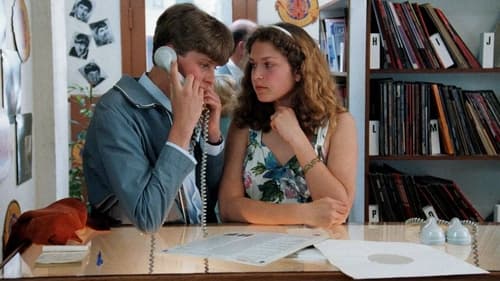
A snapshot of the state of the Danish nation: in one of the stories, a woman enters a pole-sitting contest in a desperate bid to reinvent herself. Another is about Erik, whose wife has been lobbying a Better Homes and Gardens type magazine to do a spread on their perfect home. When the editors finally relent, she makes Erik sip his red wine in the laundry room lest he stain their cream-colored couches. Svend, the last remaining Marxist in Copenhagen, is the impassioned organizer of a political mass meeting where no one shows up. Finally, Jens, a pizza and porno connoisseur, connives his way to some booty by convincing Gry the model that he lives with his mentally challenged brother. Over the course of a week, their paths cross and nothing, and nobody, is ever quite the same again.

Danish teens come of age in 1963. Bjorn and Erik are close friends. Bjorn is pursued by Kirsten, a future Stepford wife, but he falls for Anna, who initiates him into love and sex. Erik is somber, caring for his home-bound mentally-ill mother while his strict father rules his life. He desires Kirsten, but she's unattainable. Pregnancy, a horrific abortion, an engagement party, and a revelation about the rectitude of Erik's father lead to a climax: Bjorn and Erik must stand up to controlling adults.

The television series was based on a play by Danish author Bjarne Reuter. In 1984 Reuter published his collection Tre skuespil ("Three Plays"); a collection containing also En dag i Hector Hansens liv ("A Day in the Life of Hector Hansen") and Kom der lys i neonrøret, gutter? ("Was There Light in the Neon Tube, Boys?") – in addition to Busters Verden.


